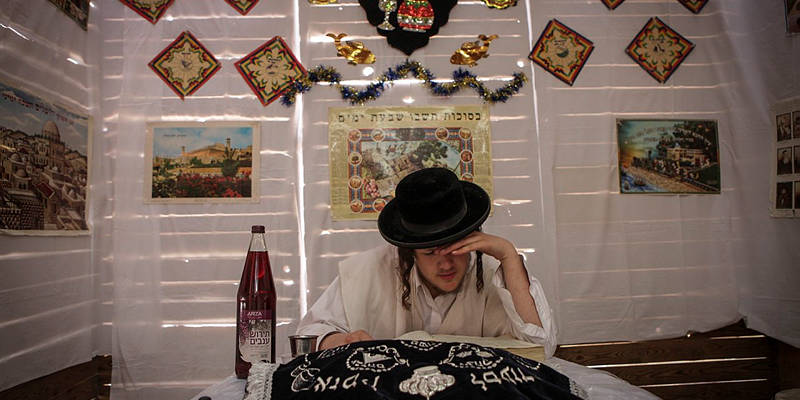The observance of the joyous Festival of Sukkot “protects” the spiritual growth experienced over the High Holy Days.
By: Rabbi Ari Enkin
Rabbinic Director, United with Israel
In our daily prayers we describe God as the Melech Ozer U’moshia U’magen, the “King who helps, brings salvation and protects.”
It is taught that these four Hebrew words refer to the four themes of the festive – and current! – month of Tishrei.
The word “Melech” (“king”) refers to Rosh Hashana, when we celebrate God’s Kingship over the world. The second word, “Ozer” (“helps”), refers to the period between Rosh Hashana and Yom Kippur, when God helps us repent and get closer to Him. “Moshia” (“brings salvation”) refers to Yom Kippur, when God forgives our sins and frees us from punishment.
Finally, “Magen” (“protects”) refers to Sukkot. This is because on Sukkot, when we leave the comfort and security of our homes to eat and sleep outside in temporary hut, we are in need of God’s protection.
There is another interpretation for “Magen” as well. We have all been working on ourselves to become better people in the days leading up to Rosh Hashana and Yom Kippur. With the High Holidays behind us, we need to do something to “protect” the higher levels of spirituality that we’ve achieved. And how do we do this? With proper observance of Sukkot.
Whether it’s the many laws related to the Lulav bundle or deciphering when we are obligated to eat and sleep in the sukkah and when we’re not, celebrating Sukkot properly is complicated.
But the joy and celebrations associated with each day of Sukkot make us want to observe the holiday meticulously, and by extension, our meticulous observance helps us maintain, at least during the eight days of the festival, the high level of spirituality achieved over the High Holy Days.
This is the meaning of “Magen,” namely, that the holiday and observance of Sukkot “protects” the spiritual growth experienced over the High Holy Days.

